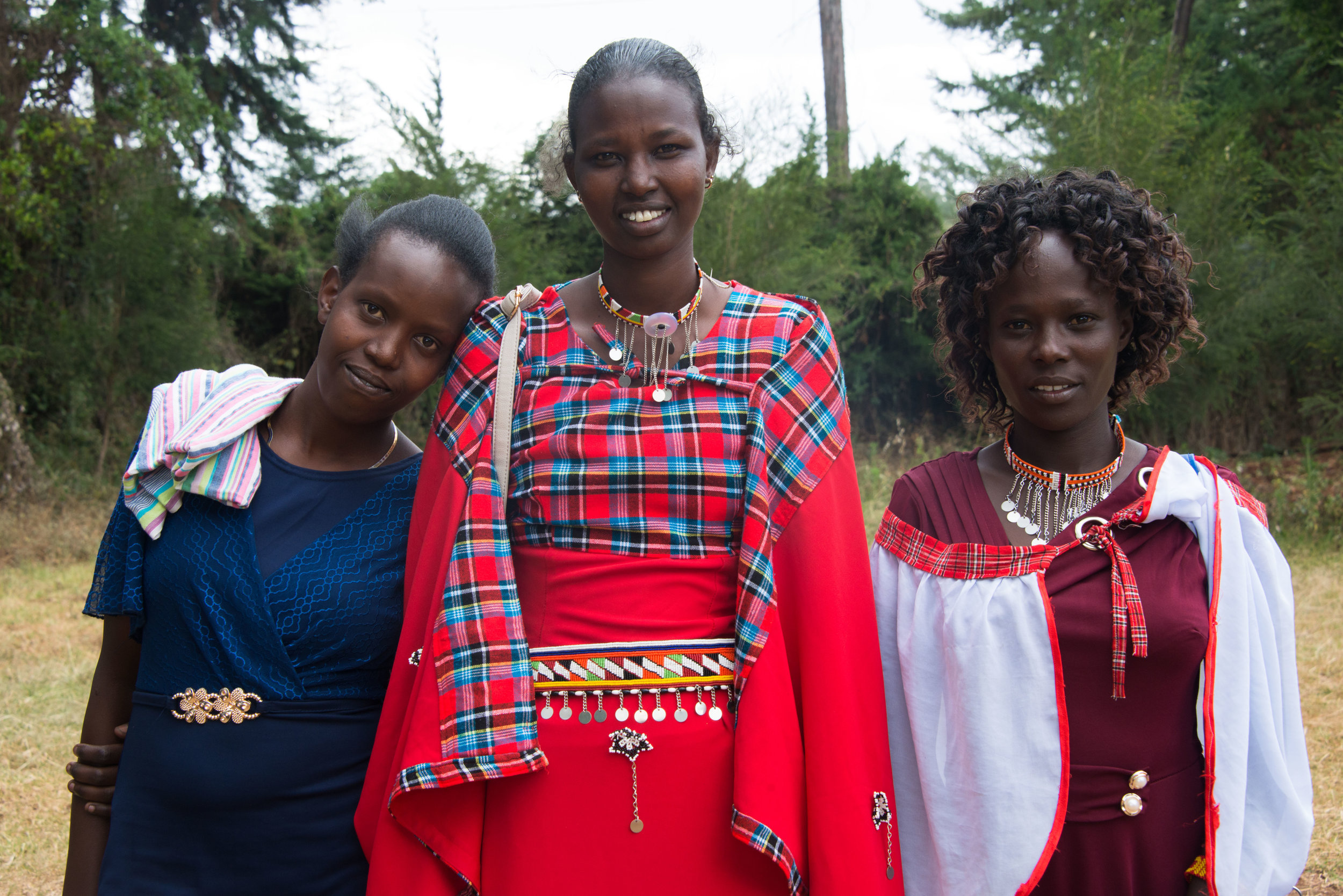Now that I have been home a little over a week from Kenya and recovered from jet lag I wanted to write a bit about my travels to Kenya while it is still fresh in my mind.
I am happy to report that the trip’s main objectives were met with no time to spare in the week I planned to be there.
I was very fortunate to have MEET Board Member, Bill Chandler, accompany me. He was not only an excellent travel companion; but also, a very good driver on the extremely bumpy roads which had basketball size rocks & also avoiding the occasional goat or cattle herd which crossed our path.
After many questions & required documents being photo copied, I was finally able to open a bank account in Kenya for the charity so money can be wired directly from our bank in the United States. This Kenyan bank account will also allow our charity to keep a close watch on how funds are used to support each girl.
Bill & I visited all four schools the MEET sponsored girls attend. Meeting this goal came with a few laughs as we found out that when we were told that a school was “close by” that could mean it was a 2 hours drive away.
When we visited Lokusero, we had to take an elderly Maasai woman and a security patrolman with us because nobody else we asked really knew where the school was located. To add to this adventure, because we were told the school was “close by”, we almost ran out of gas. Luckily when we finally arrived at the school, we learned that for just a small fee someone with a motorcycle will fetch you some gas.
I was also able to meet each girl who MEET supports except for one girl who had not yet reported to St. Francis when we arrived. This experience was by far the most rewarding aspect of the trip. Each girl is very motivated & eager to learn, so they only need the opportunity to continue attending school.
You do not need to be in Kenya for very long to realize what a woman’s future holds without a secondary education. The evidence is everywhere ranging from the food hawkers who approach vehicles slowing down to go over a speed bump to seeing women stooped over carrying large wood stacks on their backs to sell. The Nanyuki area also has hundreds of greenhouses that provide fresh flowers to Europe. This difficult labor with constant exposure to pesticides is also a possible occupation for women without an education.
Most girls who MEET supports attend the St. Francis Secondary Girls’ School. Angeline who is the first girl the charity supported, graduated from this school last November with marks high enough to attend college. However, currently she works in a wealthy home near Lake Nakuru which will allow her to earn enough money later to attend nursing school. I have been told this arrangement is a very common practice in Kenya. Liz Silakan who works with us in Kenya told me that she worked two years at a Maasai luxury resort called Il Ngwesi for two years before attending college.
Before I left for Kenya I believed we would only be supporting six girls as we had done in 2018. However, it quickly became clear the need was much greater.
Liz informed me that before I visited, ten mothers requested Mali Ole Kaunga to ask MEET to help their daughters. Additionally, on the day we arrived at St. Francis Secondary Girls’ School, we were informed about twelve girls waiting outside the administration office who did not have money to pay for the tuition. Thankfully with Bill’s encouragement and Rosemary & Mali’s help, we added more girls to support.
So, in 2019, MEET is supporting eight girls, but many more need our help.
With more droughts occurring & less pasture land available, many Maasai men find it difficult to maintain their traditional herding lifestyle. More than ever before, Maasai women are being abandoned by their husbands or are dying from diseases such as AIDS leaving little money to feed and care for their children, much less allowing them to attend secondary school. When money is available for schooling the father prefers to send their sons to school since they will always be with the family. However, even under these dire circumstances, a few girls still find a way not only to study; but also, to pass their 8th grade exams.
These are the girls we want to support!
I encourage you to go to the “MEET the Girls” & “Kenya Schools” links on the website. You will see that each girl has their own unique, difficult circumstances. I also hope you will find the information about the Kenyan school system to be interesting. My friend Bill who accompanied me taught school for two years in Guinea located in West Africa & he was very impressed with the Kenyan school system.
Once again, thank you for your interest in our small charity that really does “Change a girl’s life!”
If you decide to donate, then I assure you that every dollar you give goes to help a Maasai girl attend secondary school in Kenya as my promise & commitment to the charity is always to cover all operating costs.
Very Sincerely,
Gina Rodgers

